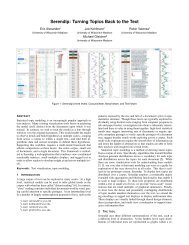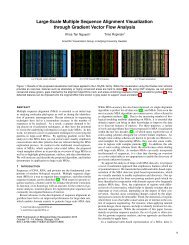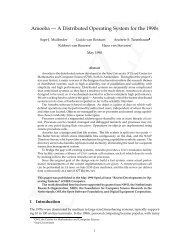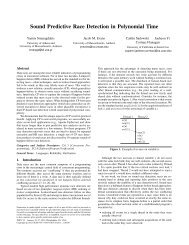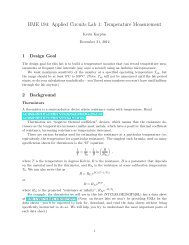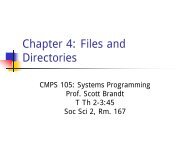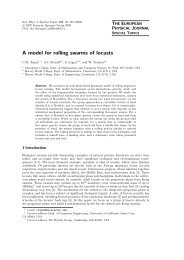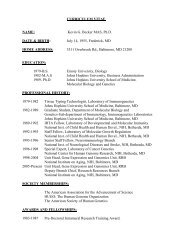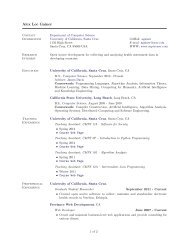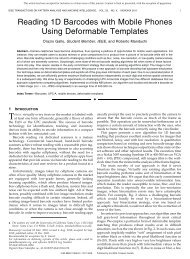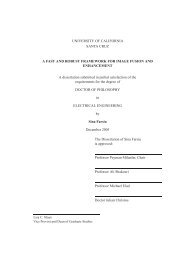Weird Languages (1) For Software Studies Michael Mateas ...
Weird Languages (1) For Software Studies Michael Mateas ...
Weird Languages (1) For Software Studies Michael Mateas ...
Create successful ePaper yourself
Turn your PDF publications into a flip-book with our unique Google optimized e-Paper software.
Othello:<br />
You are as small as the difference between yourself and a hair!<br />
Shakespeare structures the play of the language so as to double-code all programs as<br />
stage plays, specifically, as spoofs on Shakespearean plays. This is done primarily by<br />
structuring the play (that is, the free space) that standard languages provide in the naming<br />
of variables and constants. In standard languages, variable names are a free choice left to<br />
the programmer, while numeric constants (e.g. 1) are either specified by the textual<br />
representation of the number, or through a name the programmer has given to specific<br />
constants. In contrast, Shakespeare Dramatis Personae (variables) must be the name of a<br />
character from a Shakespeare play, while constants are represented by nouns. The two<br />
fundamental constants in Shakespeare are -1 and 1. The nouns recognized by the<br />
Shakespeare compiler have been divided into positive, negative, and neutral nouns. All<br />
positive (e.g. “lord”, “angel”, “joy”) and neutral (e.g. “brother”, “cow”, “hair”) nouns<br />
have the value 1. All negative nouns (e.g. “bastard”, “beggar”, “codpiece”) have the<br />
value -1. Constants other than -1 and 1 are created by prefixing them with adjectives;<br />
each adjective multiplies the value by 2. So sorry little codpiece denotes the<br />
number -4.<br />
The overall structure of Shakespeare follows that of a stageplay. Variables are declared in<br />
the Dramatis Personae section. Named acts and scenes become labeled locations for<br />
jumps; let us return to scene II is an example of a jump to a labeled<br />
location. Enter and exit (and exeunt) are used to declare which characters (variables) are<br />
active in a given scene; only two characters may be on stage at a time. Statements are<br />
accomplished through dialog. By talking to each other, characters set the values of their<br />
dialog partner and themselves, compare values, execute jumps, and so forth.<br />
In a programming language, keywords are words that have special meaning for the<br />
language, indicating commands or constructs, and thus can’t be used as names by the<br />
programmer. An example from C is the keyword for used to perform iteration; for can<br />
not be used by the programmer as the name of a variable or function. In standard<br />
languages, keywords typically limit or bound play, as the keywords are generally not<br />
selected by language designers to facilitate double-coding. This is, in fact, what makes<br />
code poetry challenging; the code poet must hijack the language keywords in the service<br />
of a double-coding. In contrast, weird languages that structure play provide keywords to<br />
facilitate the double-coding that is generally encouraged by the language.<br />
Another language, Chef, illustrates different design decisions for structuring play. Chef<br />
facilities double-coding programs as recipes. Variables are declared in an ingredients list,<br />
with amounts indicating the initial value (e.g., 114 g of red salmon). The type of<br />
measurement determines whether an ingredient is wet or dry; wet ingredients are output<br />
as characters, dry ingredients are output as numbers. Two types of memory are provided,<br />
mixing bowls and baking dishes. Mixing bowls hold ingredients which are still being<br />
manipulated, while baking dishes hold collections of ingredients to output. What makes<br />
Chef particularly interesting is that all operations have a sensible interpretation as a step



